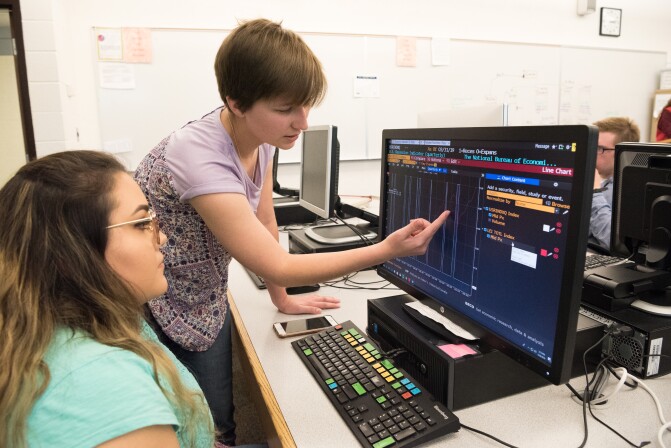
Real-World Preparation
Students majoring in economics develop strong analytical and quantitative reasoning skills that help them solve problems and identify existing alternatives.
This economic way of thinking allows individuals to address issues in finance, business, law, public policy, and international trade and development.
This economic way of thinking allows individuals to address issues in finance, business, law, public policy, and international trade and development.
"Embrace the learning model, group work, and studying together. These are life-long skills and help you the most, [because in] every occupation you will interact with others at some level."
J. C. W.,
BYU-I GRADUATE
Find out if this degree is right for you!
Watch expert advice on how to succeed in this major + career options
Highlighted Career Paths
Graduates with a degree in Economics have a wide array of rewarding careers before them. Check out some of the top careers students get with this degree or explore more career options in I-Plan.
Business Manager
Business managers oversee daily operations of a business or manage a group of workers within a company.
Data Analyst
Data analysts work at solving problems for businesses using data, tools, and skills related to production, costs, and clients. Analysts can also work on project management and development.
Public Policy / Government
In this career, you will work in a think tank or governmental organization doing analysis of policy.
Further Education
You may also pursue a Masters degrees in Economics, Business, or a related field or a PhD in Economics. Many students also go on to Law School.
Getting Started in This Degree
If you are interested in Economics start with one of the following major-specific courses:



